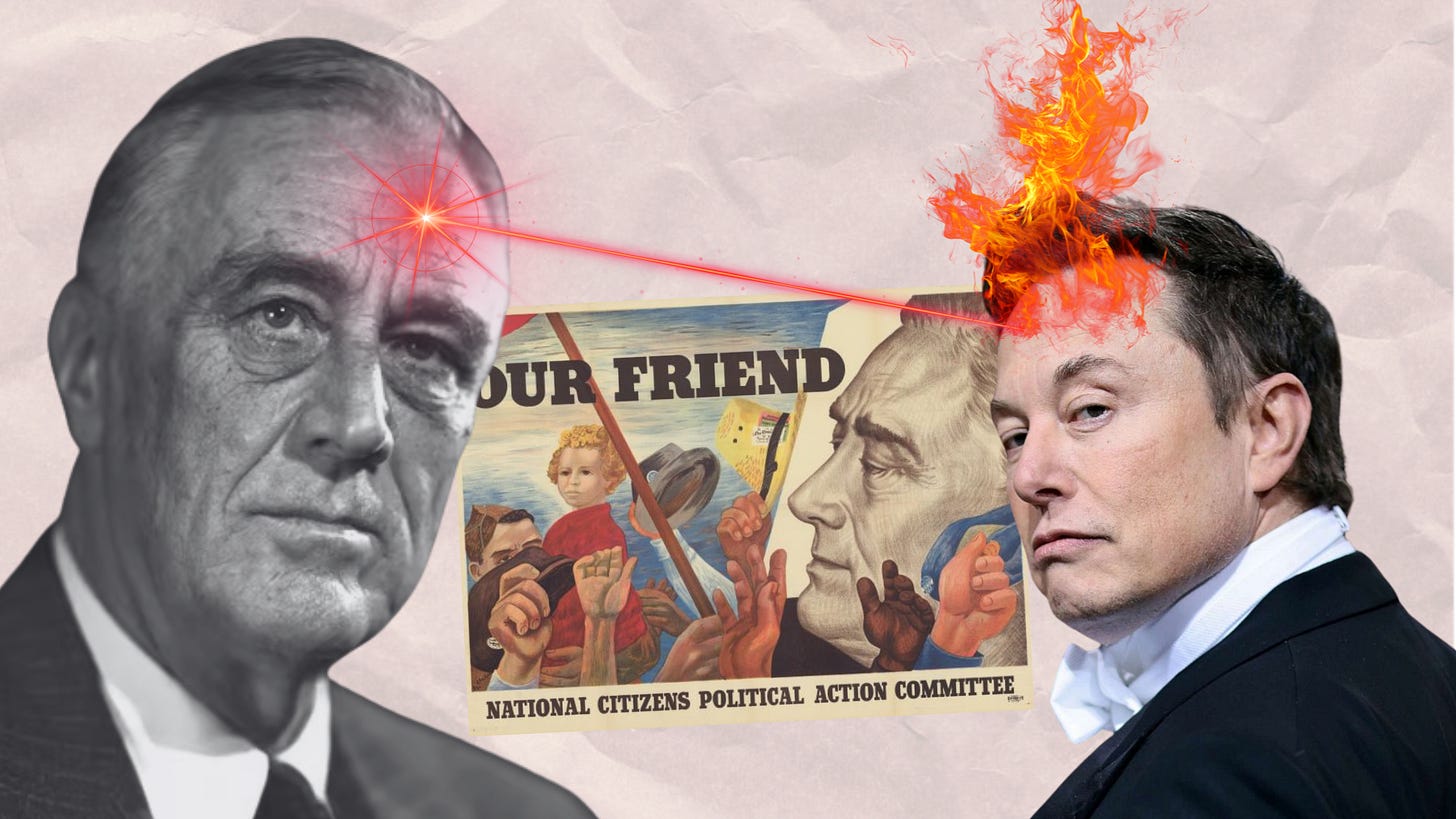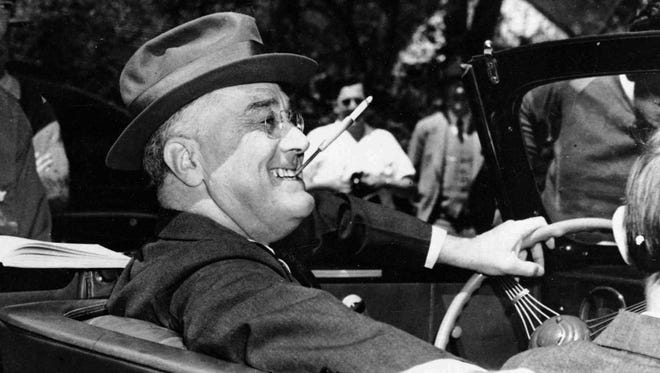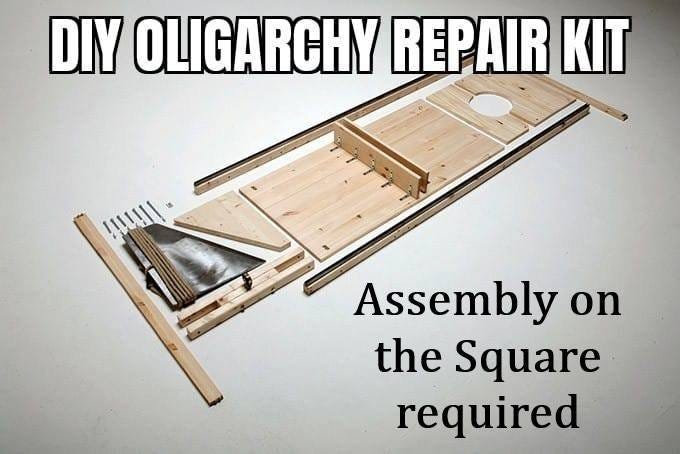In socialist discourse, the term “class traitor” has negative connotations, typically referring to a working class person who operates against their class interests in support of the ruling class. Categorically, this can include strikebreakers who cross the picket line, police officers who enforce laws that disproportionately benefit the bourgeoisie, or, really, just about anyone who chooses to uphold a status quo that harms the poor and benefits the wealthy. However, against this traditional definition, I want to examine a different kind of class traitor: wealthy individuals whose actions seem to defy the material interests typical of their tax bracket.
Admittedly, the mere idea that such an individual actually exists is a joke that conservatives never get tired of telling. Every time I am privy to the gag, the offending comedian seems to believe, with great certainty, that they’ve finally laid bare the unrelenting hypocrisy of the left.
“Did you know Bernie Sanders owns three houses?” They often quip. “He’s actually worth a million dollars, you know.”
Then there’s the classic, “Ahh, I see you hate capitalism, and yet there you are with an iPhone! Curious that you say you disagree with aspects of the society you live in and yet you continue to participate in that same society. I am very smart! Why won’t pretty women have sex with me?!?!”
I’ve also heard some conservative commentators refer to these privileged individuals as “Limousine liberals.” Those particular pundits are, funnily enough, often the very same people who believe that the only Americans genuinely attracted to socialism are blue haired millennials who don’t have any calluses on their hands and can’t even get a coffee order right!
The Reign of Roosevelt
Franklin Delano Roosevelt is probably my favorite historical class traitor. Roosevelt’s New Deal era reforms challenged, and in some ways even undermined, the dominant class interests of his own social milieu. Facing the unprecedented economic crisis of the Great Depression, FDR implemented a series of programs that expanded the role of the federal government in the economy and established a basic social safety net, directly confronting the laissez-faire capitalist principles favored by the wealthy elite, industrialists, and conservative politicians of the era.
To be very clear, it is unlikely that FDR did this simply because his heart had found a home among the working class. Coming on the heels of the Russian Revolution in 1917, western nations, both monarchies and liberal democracies, were apprehensive. The Gilded Age had ushered in an unprecedented era of economic inequality and, as a result, immense human misery. This, coupled with back-to-back global conflicts and a world war, all for the sake of the expansionist dreams of an elite few, soured public opinion and caused mass hostility towards leadership across the world. FDR, having seen small armies literally march on Washington and watching socialist sentiment growing worldwide, understood the need to, in effect, impose a significant burden on the wealthy to stabilize society and prevent an Americanized October Revolution. This was the New Deal.
Prior to the New Deal, the prevailing economic philosophy, especially in the U.S., held that government intervention in the economy should be minimal. This suited the interests of the wealthy and those associated with big business, who benefited from low taxes, limited regulation, and a weak labor movement. They viewed their economic success as a result of individual merit and free-market principles, and saw government assistance to the unemployed or poor as an infringement on these ideals and a disincentive to work. What did this look like in terms of policy? Here are just a few examples:
First, the Revenue Act of 1935, also called the Wealth Tax, significantly increased taxes on high incomes, inherited money, and corporate profits. This took a larger share of wealth from the rich to fund government programs, which wealthy people strongly resented as an intrusion on their private fortunes.
Second, agencies like the National Recovery Administration (NRA) and laws like the Wagner Act brought substantial government oversight and regulation into businesses. The NRA aimed to stabilize the economy by managing prices and wages, while the Wagner Act gave workers essential rights to organize unions and negotiate collectively. Business leaders fiercely opposed this, seeing it as government overreach that harmed free markets and unfairly empowered labor unions.
Third, the Social Security Act of 1935 created a federal safety net. It established systems for unemployment benefits, retirement pensions for the elderly, and aid for struggling families with children. This marked a major step toward the government providing a welfare state, offering security to vulnerable populations. (It's worth noting that initial exclusions, like farm and domestic workers, unfortunately reflected existing class and racial biases, though later reforms broadened coverage).
Finally, the Agricultural Adjustment Act (AAA) tried to help struggling farmers by paying them to reduce crop production to raise prices. However, this policy often benefited larger landowners far more than tenant farmers and sharecroppers, sadly leading to the displacement of many, particularly African Americans. This demonstrates how even well-intentioned reforms could sometimes intersect with and worsen existing inequalities.
To achieve these goals, FDR used a technological innovation that made access to the public easier than ever before: the radio. Through masterfully utilized radio broadcasts in his “fireside chats”, Roosevelt was able to directly address the American public — explaining his policies, building trust, and rallying support for his programs. This effort allowed him to bypass media outlets well known for twisting the truth to their own business-centered interests. He was thereby able to portray his adversaries as out - of - touch royalists and frame the New Deal as a necessary economic response that would benefit ordinary Americans.
Obviously, the New Deal did not dismantle capitalism. This is because it was never intended to. FDR was not an outsider who dreamed of infiltrating and dissolving Washington’s elite; he was, himself, a product of the elite, the wealthy heir to an economic and political dynasty. Importantly, some leftists still criticize these policies by arguing that FDR protected and stabilized a capitalistic system on the brink of collapse rather than replace it with a more equitable economic framework rooted in socialist principles. At the same time, Roosevelt advocated for policies that, while arising from an effort to curb the hunger for revolution among a disenfranchised American public, also genuinely constituted a class betrayal on his own part. And that unprecedented class betrayal has benefitted every day American for decades.
A New New Deal
Based on the lessons of the past, perhaps what America needs now is a “new” New Deal. We must recognize that achieving this won't be easy, as the success of the original New Deal was partly fueled by unique historical conditions, like the industrial boom facilitated by wartime manufacturing needs and a global economy left crippled by conflict, creating a particular context for U.S. growth. Nevertheless, using the power of government to ensure the basic needs of Americans are met is crucial for preventing a total internal collapse today. Advocating for such policies – ensuring basic needs are met and resources are more equitably shared – represents an incremental step towards building a more just world.
While I oppose capitalism in principle and in practice and ultimately want society to adopt an explicitly socialist (not just hybrid) economic and political framework, I don’t believe this deeper vision can be realized to its fullest impact if people are trapped in destitution and misery. When people live in scarcity and their conditions are poor, they don’t typically make the most judicious or sound political decisions. Extreme deprivation could push many to join leftist movements. On the other hand, and perhaps more worryingly in the current climate, it could also drive people ever deeper into reactionary mindset. This latter outcome has, in many respects, fueled the rise of far-right nationalistic movements across the globe. Therefore, establishing a new era of government action focused on meeting basic needs isn’t just about providing immediate relief; it’s also about creating the stability necessary for people to think clearly and work towards a genuinely more humane and equitable future, socialist or otherwise.
Finding Leaders Fit for Change
Achieving the kind of equitable policies needed for a “new” New Deal will require electing leaders willing to enact measures that undermine the economic advantages of their own social group and that prevent them from leveraging their status in office for personal financial gain. Before looking at a specific example, however, let’s clarify the kind of understanding or action we are discussing. It’s not necessarily someone who embraces the full spectrum of socialist ideology. Instead, at a minimum, it’s someone who understands the need for wealth redistribution. This understanding might not stem from pure ideology, but from a pragmatic recognition that failing to address extreme inequality risks economic collapse and, potentially, violent revolution. Speaking personally, as a pacifist, I believe that we should pursue economic change without resorting to violence. Historically, violent revolutions haven’t always led to genuinely more humane or equitable systems, and the human cost is always immense. Therefore, it’s crucial that people currently thriving in this backwards ass economy support policies designed to lift everyone up. If they don’t do it out of a sense of the common good, they should consider doing it to protect themselves from the potential consequences of widespread discontent – to protect themselves, metaphorically, against the coming guillotine.
However, finding these leaders won’t be easy given that American politics has become overwhelmingly beholden to capital. Consequently, we see very few elected leaders who are consistently willing to vote for policies that genuinely violate their own personal or class financial interests. We may see them engage in performances meant to signify their discontent with the status quo, such as Cory Booker’s 25 hour senate speech, only to leave their podium and quietly vote in favor of a massive, multi-million dollar weapon’s package to Israel or approve a budget that has been cruelly gutted to decrease the money dedicated towards funding important social services that the most vulnerable Americans rely on.
One possible contender I’ve been forced to contemplate this week is JB Pritzker, the billionaire governor of Illinois. Admittedly, I don’t trust him. After all, he’s a billionaire and nobody makes that kind of dough by diligently following in the footsteps of Jesus Christ and feeding needy children. Still, he has recently distinguished himself in the public discourse by openly challenging authoritarian-leaning Republicans and criticizing leaders within his own party as “Do nothing Democrats.” For someone in his tax bracket, taking such stances might reasonably be interpreted as acting against the typical interests of his class, even if his focus isn’t primarily on dismantling the American oligarchy. His behavior also stands out when judged against the many sordid ways in which other extremely wealthy individuals and corporations have recently navigated the political waters. While it is certainly possible that Trump has alienated at least a handful of some ultra-wealthy allies with his game of “will I or won’t I pass another economy-ending tariff,” capitulation, rather than rebellion, has been the strategy most of America’s wealthiest individuals have chosen, even among those top earners who have been financially harmed by Trump and company’s tenuous grasp of economics. Jeff Bezos, for instance, was reported to have backtracked from his articulated plan of explicitly highlighting the price differences on Amazon that will come as a direct result of the tariffs. Other companies, especially law firms, have also accommodated Trump, despite demands that could hurt their bottom line. This contrast underscores a critical need: with inequality deepening and society sliding back towards a Gilded Age, proactive challenges from within the elite are arguably necessary to avoid reaching a point of crisis. More individuals willing to act against their immediate class interests will be required if we aim push back against the forces driving this dangerous inequality without resorting to all out class war.
Think Globally, Vote locally
Admittedly, any good and upstanding socialist worth their salt would argue that the actions of individual billionaires or corporations are less important than the immense, unchecked power of the capitalist class and the logic of capital accumulation that drives the system. Pritzker’s particular political stances or Bezos’ business decisions are, from this perspective, secondary to the fact that the system allows individuals to accumulate such vast wealth and influence in the first place. As such, waiting on the wealthy to defy their class interests isn’t the only path we should explore, nor is it the most reliable one. Building power for equitable change must also happen from the ground up, by getting involved in local politics and engaging in grassroots organizing. Local elections offer unique opportunities. They are often less dominated by big money than national races, and it’s one of the few places you can successfully elect for third-party candidates to office – positions like city council, school board, or local commissions. Building small coalitions at this smaller level is one of the most impactful ways to get the ball rolling towards broader systemic change. By focusing on local engagement, we can elect representatives who are directly accountable to their communities, build tangible power structures outside of corporate influence, and lay the groundwork for the kind of fundamental shifts needed to create a genuinely more humane and equitable society.
Additionally, my perspective on the role of class traitors doesn’t mean that we should refrain from taking decisive, and disruptive stands when and where we can; only that the path towards a more equitable society doesn’t need to involve revolutionary upheaval. We should still remember that some of our most cherished Civil Rights were, largely, won on the back of civil disobedience, and that civil disobedience, by definition, does not materialize within the parameters of the law. Martin Luther King, Jr., for example, followed in the tradition of philosophers who insisted that we have a moral obligation to disobey an unjust law. And so King took action, organizing boycotts, marches, and sit-ins that occasionally landed him in jail. And in our current moment, this form of protest may ultimately prove necessary as we face off against a tyrannical administration that has shown no little hesitation in arresting judges, violating due process, deporting U.S. citizens, and weaponizing immigration enforcement in racist attacks against vulnerable individuals seeking asylum in America. Such non-violent civil disobedience, by disrupting the status quo and highlighting the intensity of public demand for change, can be one of the factors that pushes more wealthy or politically entrenched actors to advocate for policies that address underlying grievances, quell the mobilized masses, and limit the kind of corruption we are currently seeing in Washington. It creates a sense of urgency that conventional politics might otherwise ignore. And, very significantly, doing this might mean that you and your family don’t have to start sharpening your pitchforks just yet.
In conclusion, we can, and should, incorporate key socialist principles into our politics by working towards tangible improvements in people’s lives right here and right now and using that momentum to build support for more fundamental changes over time. And while recognizing and advocating for the few wealthy individuals willing to challenge their class interests is valuable as part of a multi-pronged strategy, this does not absolve us of the fundamental responsibility for building power through grassroots organizing, strengthening unions, and working for change from the bottom up through the use of disruptive measures. True transformation requires leveraging every tool in our toolkit, but the engine of change must ultimately be collective action.






